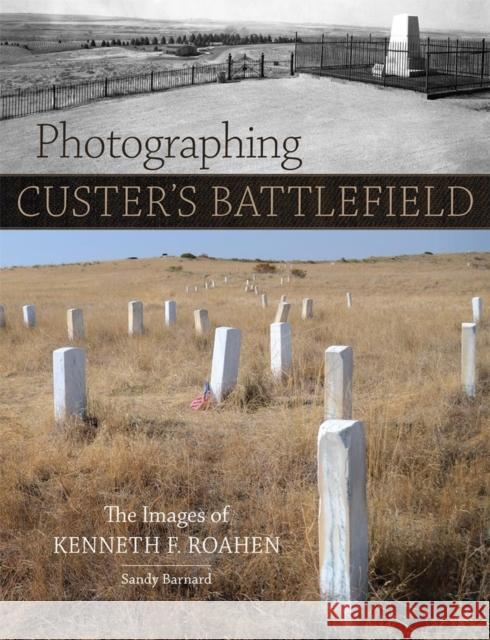Photographing Custer's Battlefield: The Images of Kenneth F. Roahen » książka
Photographing Custer's Battlefield: The Images of Kenneth F. Roahen
ISBN-13: 9780806151595 / Angielski / Twarda / 2016 / 280 str.
Photographing Custer's Battlefield: The Images of Kenneth F. Roahen
ISBN-13: 9780806151595 / Angielski / Twarda / 2016 / 280 str.
(netto: 148,66 VAT: 5%)
Najniższa cena z 30 dni: 155,45
ok. 22 dni roboczych.
Darmowa dostawa!
In the 140 years since the defeat of George Armstrong Custer and his troops at the Battle of the Little Big Horn, scholars and other visitors have combed the site of today's Little Bighorn Battlefield National Monument for evidence that might clarify the controversial events of June 1876. In Photographing Custer's Battlefield, Sandy Barnard, an expert on Custer and the Little Big Horn, presents the work of the site's most dedicated photographer, U.S. Fish and Game agent Kenneth F. Roahen (1888-1976), revealing further mysteries of the battlefield and showing how it has changed.
Barnard opens by introducing readers to Roahen, who spent the last phase of his career and his retirement years in Montana, where he made it his personal mission from the 1930s to the 1970s to photograph what was then called Custer Battlefield. Among Roahen's most useful images are his photographs of the Crow's Nest, the Morass, and Girard's Knoll--places whose precise locations have long been debated. He also made a series of pioneering aerial photographs of the Little Big Horn and its surrounding landscape.
When paired with Barnard's modern-day photographs, maps, and thorough analysis, Roahen's images provide valuable information for visitors to the monument as well as for historians, biologists, engineers, and other government employees who interpret, preserve, and protect the battlefield and its surrounding terrain. In addition to showing sites associated with the fighting, Roahen's photographs depict mid-twentieth-century roadwork, archaeological surveys and restorations, and construction of the visitor center, park housing, and maintenance facilities. Barnard's matching photographs, taken in 2012 and 2013, help to identify additional subtle but significant landscape modifications.
The numerous debates surrounding the Battle of the Little Big Horn have made on-the-ground evidence especially important. Roahen's photographic legacy, explored here in more than 300 historic and contemporary images, offers fresh insight into the battlefield's ever-changing landscape, helping visitors old and new to better understand the history beneath their feet.











